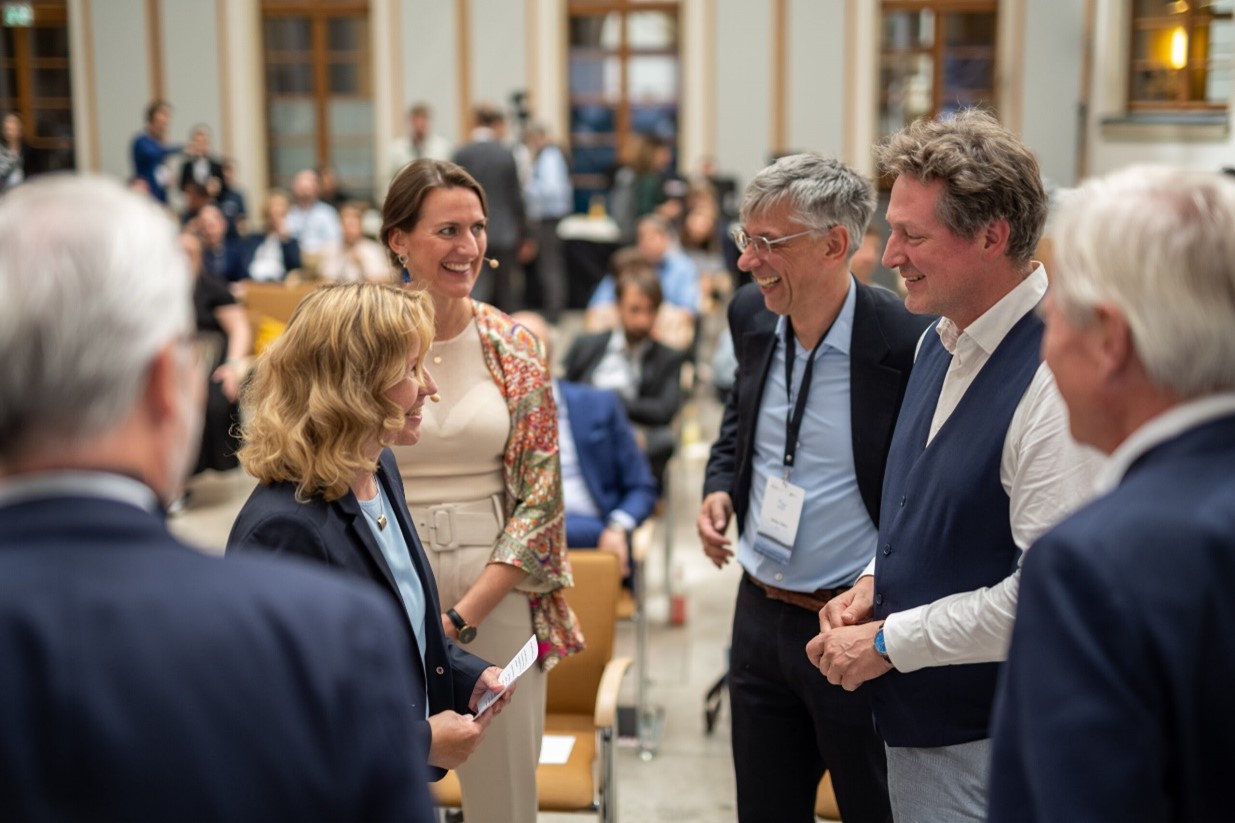
After three years of intensive research and collaboration, we are pleased to present the SINA Final Report. SINA “Soziale Innovationen für Nachhaltigkeit“ (Social Innovations for Sustainability in English) was commissioned by the Federal Ministry for the Environment, Nature Conservation, Nuclear Safety, and Consumer Protection (BMUV) and implemented by Yunus Environment Hub explored how social innovations can drive transformative solutions for Germany’s environmental and sustainability goals.
In the context of the Paris Agreement and 2030 Agenda, Germany’s unwavering commitment to a resource-efficient and sustainable future has never been more apparent. The SINA Final Report reveals how social innovations can drive the circular economy, enhance social equity, and catalyze systemic change across industries. It provides a comprehensive overview of the actors, market dynamics, incentive systems, and framework conditions that promote social innovations in the environmental sector.
Key Insights
The SINA Final Report highlights that social innovations frequently face inadequate access to funding and support in the early stages of their development, hindering their scalability and long-term impact. There is a lack of suitable support programmes, which provide both financial and non-financial support. Existing programmes often do not address the specific needs of social innovations, particularly in terms of start-up funding, access to networks, and expert consultancy.
Another key finding is that the successful diffusion of social innovations – meaning their widespread adoption and integration into institutional structures – is essential for achieving transformative outcomes. This requires both political support and adjustments to legal and regulatory frameworks to create an enabling environment. Without these tailored mechanisms, many promising innovations struggle to reach their full potential and fail to contribute meaningfully to sustainable development.
To unlock the full potential of social innovations and drive systemic change, the SINA Final Report presents actionable policy recommendations. These recommendations focus on targeted financing, enhancing political support, and fostering local systems to create a more enabling environment for social innovations to thrive.
1. Targeted Financing Models: Establish funding programmes that offer flexible, low-budget start-up financing and explore innovative sources of funding, such as dormant assets, to support early-stage Social Innovations.
2. Standards for Impact Management: Develop a standardized framework for impact management that allows for long-term, process-oriented approaches to assess and scale the impact of social innovations within the environmental sector.
3. Strengthening Political Visibility:
Enhance the political presence of social innovations by fostering greater collaboration between ministries, ensuring that social innovations are prioritized in policy-making processes and committee discussions.
4. Infrastructures for Local Systems:
Support the development of local sharing systems that facilitate social innovations by providing resources, physical spaces, and municipal assistance mechanisms.
5. Promoting the Circular Economy through Social Innovations: Increase political backing for circular economy initiatives and waste prevention strategies through national programs, competitions, and empowering local municipalities to implement these initiatives effectively.
6. Implementation of the EU ‘Right to Repair’ Directive: Integrate social innovations into the national adoption of the EU “Right to Repair” Directive, enhancing visibility and prioritizing contracts awarded within Extended Producer Responsibility frameworks.
The Path Forward
The SINA Final Report offers critical insights into how social innovations can support Germany’s climate and environmental goals. While the potential is clear, there is a pressing need for systemic changes in policy and support structures to allow social innovations to thrive. By aligning funding models, policy frameworks, and political visibility, Germany can position social innovations as a central part of its ecological and social transformation.
This vision is further echoed by Germany’s adoption of the Nationale Kreislaufwirtschaftsstrategie – NKWS (National Circular Economy Strategy) in December 2024. The NKWS lays out a comprehensive framework to transition toward a circular economy, focusing on smarter product design, efficient material use, extended product life, and maximizing recycling across industries. Social innovations can play a vital role in advancing these goals by fostering innovative solutions for waste prevention and resource efficiency. Examples like SINA and the NKWS highlight Germany’s commitment to driving a global shift toward sustainability and setting a powerful example for others to follow.
Read the SINA Final Report (in German): https://si-na.org/
Stay tuned for updates as we continue to advocate for the transformative power of social innovations in creating a better future for Germany and the world.
Photo credit: Yunus Environment Hub